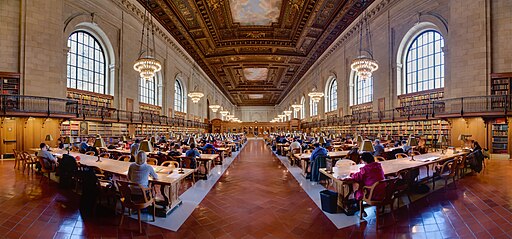For Wikipedia’s 17th birthday, John Lubbock (Communications Coordinator for Wikimedia UK) has kindly provided this post, which includes news about an exciting new initiative.

We believe that editing Wikipedia should be a part of any academic and research project. Learning to edit is not that hard, and there are many resources available online that can help you get to grips with the website’s policies and learn to edit in the best way possible.
We also run events all around the UK, often in partnership with institutions like the Scottish Libraries and Information Council, where our Wikimedian in Residence Sara Thomas is currently encouraging the use of Wikipedia among library staff in Scotland. Our Wikimedian in Residence at the Bodleian Library Oxford, Dr Martin Poulter, has also been doing amazing work which you can read about on the Bodleian blog.
January 15 also marks the beginning of the ‘One Librarian, One Reference’ initiative, which runs until February 3rd. The idea of #1Lib1Ref is to encourage every librarian to contribute one citation to any Wikipedia article. Librarians are perfectly placed to have an array of undigitised sources at their fingertips which can be used to improve the richness of the reference lists on Wikipedia.
Explainer video about #1Lib1Ref by Wikimedia UK
Wikipedia is considered trustworthy because its information is transparent and verifiable – you can see exactly where it comes from and you should be able to check that the information on the page is an accurate summary of the sources used. This knowledge ecosystem also creates a feedback loop where people researching a topic who want a deeper understanding may look at the references on Wikipedia and decide to go to a library to explore the references.
Because of this commitment to transparency, Wikipedia will often tell you not just when something is backed by reliable sources, but when something on the site is lacking a citation. The Citation Hunt tool allows people to find paragraphs of text on Wikipedia that contain unreferenced statements, often labeled with the [citation needed] tag. You can then find an appropriate reference and replace the tag. You can read about the experience of a curator at Edinburgh University using Citation Hunt during last year’s 1Lib1Ref here.
The campaign runs until February 3, and you can find out more about it on the Wikipedia Library. We are asking people who take part to share their edits on social media with the hashtag #1Lib1Ref, and if you would like to get more involved and run an editing workshop at your library, you can contact Wikimedia UK on Facebook, Twitter or via our website to ask for help and advice about running an event. We also have a community of volunteers around the country who may be able to lend a hand if you would like to run an event.
Editing Wikipedia is an incredibly rewarding way to learn and share your knowledge with others, and there are so many ways to contribute. Starting out with any new endeavour is always the hard part, which is why we are encouraging people to start by making simple edits to Wikipedia. Like many long term editors, you may find the experience addictive and end up becoming a Wikimedian!


Pingback: Why Not Wikipedia? – Social ERINformatics